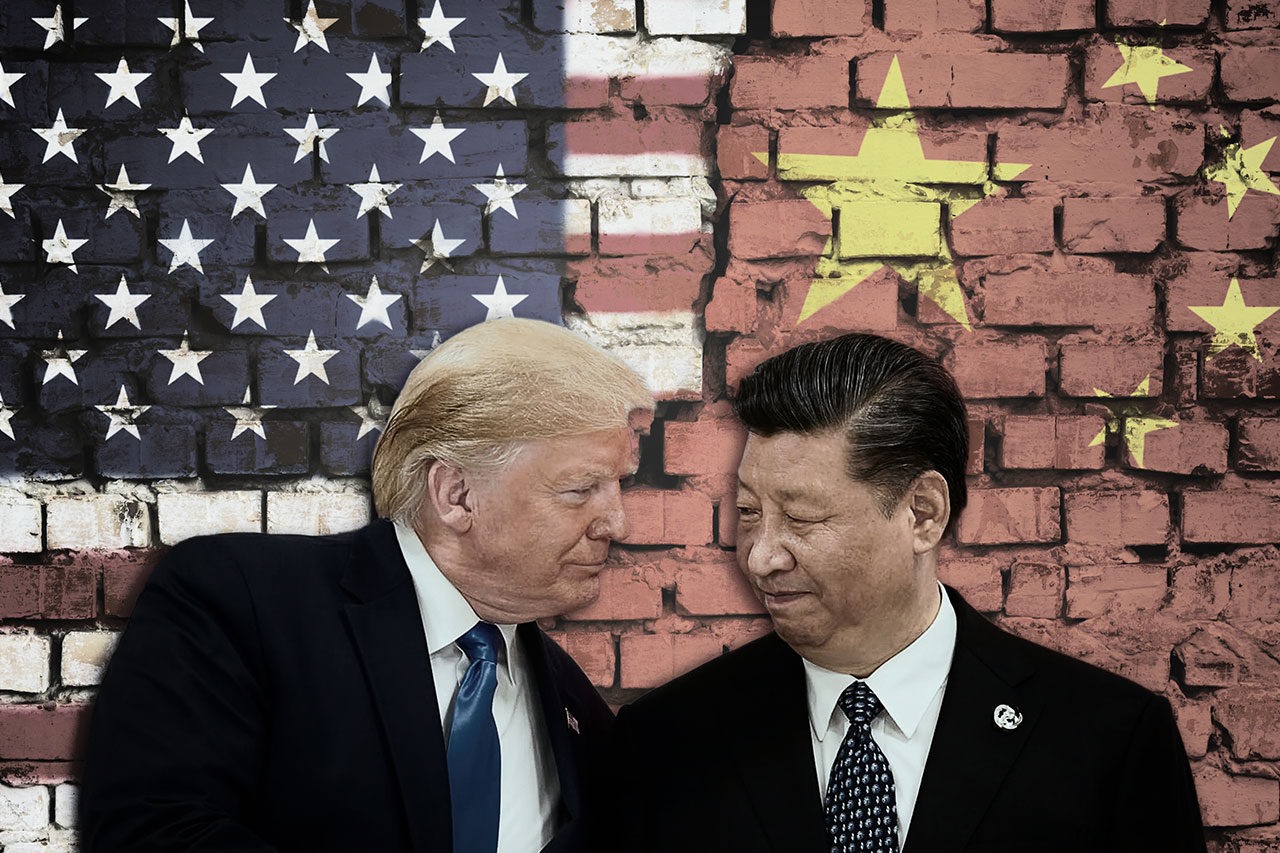HOW OIL MIGHT BE IMPACTED
President Donald Trump’s “trade war” with China continued forward this past month with no apparent end in sight.
As each global economic power digs in its heels and escalates the economic feud, experts say that the price of oil could be one of the biggest things impacted.
Global economists said in early August that oil prices could “tank” this fall if tensions between the United States and China continue to get more heated this fall.
Throughout the past several months the U.S. and China have sparred — publicly and privately — in both private negotiations between the nations and on President Trump’s Twitter account.
If issues remain unresolved, China could ignore U.S. sanctions on Iran and buy oil from them, which could spin supply out of control and “devour” the price into the future.
“A Chinese decision to reinitiate Iran crude purchases could send oil prices into a tailspin,” Merrill Lynch said in a note last month. “Because of this, oil forecasts remain heavily in flux for the future.”
It is not yet known if China would make such a drastic leap — one which the United States would likely retaliate against with economic sanctions.
But Iran is already angling for it to be part of China’s economic future.
China has never actually fully pulled away from the Middle Eastern oil powerhouse, even despite the sanctions. Their government has said publicly that they would not let global political pressures shape their energy use.
But those words have not been backed with action. Despite the pushback, numbers show that China’s import numbers from Iran have dropped significantly in the past several months — enough to keep the United States happy with their compliance.
But tariffs imposed on the Chinese by the United States are impacting the nation’s economy, which has many asking questions about the future.
Earlier this month, Iran asked the “friendly countries” of the world to defy the United States’ sanctions and buy more oil from them in the future. Of the “friendly countries,” China was on the list.
As of press-time in mid-August, there was no indication that the Chinese Government was willing to drastically up their use of Iranian oil, and meetings are set for Sept. 1 for the two nations to meet and begin trade negotiations to continue to chip away at what President Trump has called “lopsided” trade deals — agreements he believes have hurt the United States economy.
Locally, we should be rooting for those meetings to go well and for tensions between the two economic powers to slowly dissolve.
Before the threat of economic war with China, oil prices were on the incline — rising to levels above $60/barrel.
With each spat between the global powers (arguably the two biggest political powers in the world), the market develops uncertainty, which affects both the stock market and also the price of oil.
The reason for the oil-related impacts are because if China gets the Iranian oil business back booming, there will be a heavy glut of oil on the global market, which will tank the price and make deepwater offshore drilling (like what our area thrives on) far less profitable.
Instead, this area would prefer stability and prices hovering around a $65-70/barrel mark — a number that local oil experts believe could be attainable if stability comes in U.S. and China trade talks.
Merrill Lynch said their forecasts call for a $60/barrel forecast for next year and several other forecasts have been released in the past 3-6 months that indicate optimism.
“Based on some of the things we’ve been seeing and some of the projections — we really believe the future could be bright,” Port Fourchon Executive Director Chett Chiasson said earlier this summer.
But those forecasts all specify that the market is volatile and uncertain, so forecasts should be taken with a grain of salt.
“Relations between the U.S. and China will decide the future,” Merrill Lynch said. “Those decisions will shape the future price of oil.” •













